Announcing the Fall 2020 Pépin Lecture Series in Food Studies & Gastronomy
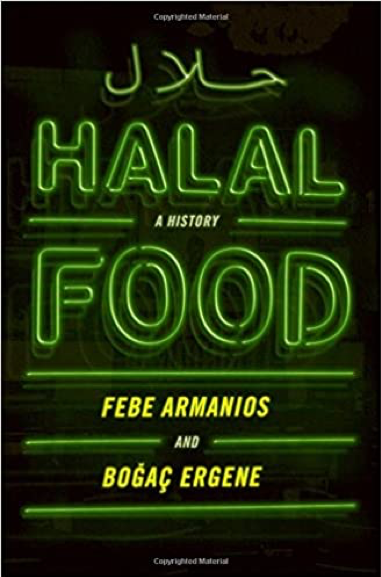
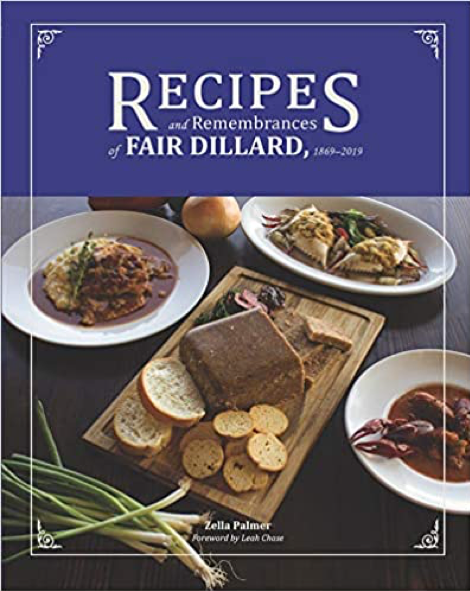
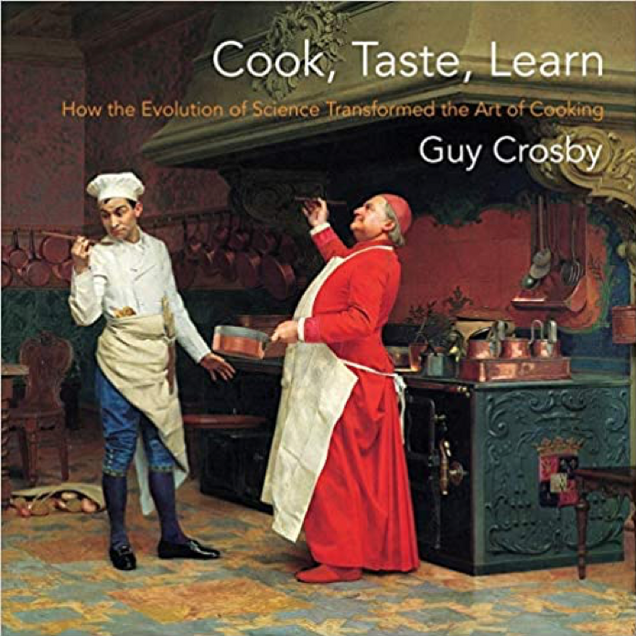
Fall 2020 lectures will be presented in webinar format. Registration is free and open to the public: please follow the link for each program to register. Registrants will receive a link to the webinar (and a recipe from the book!) approximately one week prior to the talk.
We thank the Jacques Pépin Foundation for sponsorship of this lecture series.
Halal Food: A History
Date: Friday, November 13, Noon to 1 PM
Speakers: Febe Armanios and Bogac Ergene
Food trucks announcing "halal" proliferate in many urban areas but how many non-Muslims know what this means, other than cheap lunch? In their work Halal Food: A History, Middle Eastern historians Febe Armanios and Bogac Ergene provide an accessible introduction to halal (permissible) food in the Islamic tradition, exploring what halal food means to Muslims and how its legal and cultural interpretations have changed in different geographies up to the present day.
Historically, Muslims used food to define their identities in relation to co-believers and non-Muslims. Food taboos are rooted in the Quran and prophetic customs, as well as writings from various periods and geographical settings. As in Judaism and among certain Christian sects, Islamic food traditions make distinctions between clean and impure, and dietary choices and food preparation reflect how believers think about broader issues. Traditionally, most halal interpretations focused on animal slaughter and the consumption of intoxicants. Muslims today, however, must also contend with an array of manufactured food products--yogurts, chocolates, cheeses, candies, and sodas--filled with unknown additives and fillers. To help consumers navigate the new halal marketplace, certifying agencies, government and non-government bodies, and global businesses vie to meet increased demands for food piety. At the same time, blogs, cookbooks, restaurants, and social media apps have proliferated, while animal rights and eco-conscious activists seek to recover halal's more wholesome and ethical inclinations.
Febe Armanios is Professor of History at Middlebury College and the author of Coptic Christianity in Ottoman Egypt.
Bogac Ergene is Professor of History at the University of Vermont. He is the author of Local Court, Provincial Society and Justice in the Ottoman Empire and co-author of The Economics of Ottoman Justice.
Register for Halal Food: A History
Recipes and Remembrances of Fair Dillard
Date: Friday, November 20, Noon to 1 PM
Speaker: Zella Palmer, with recipe demonstration by Katherine Kennedy
Recipes and Remembrances of Fair Dillard is a compilation of research and recipes related to Dillard University, one of New Orleans’s historically black colleges and universities, and one that is central to the history of the Civil Rights Movement, education, and the cultural identity of the city. Divided into three distinct sections, the book begins with the presidency of Albert W. Dent, who, along with his wife Ernestine Jessie Covington Dent, led the university with finesse and effective strategic planning while using the power of Black New Orleans hospitality to counter racial barriers in the height of the Jim Crow era. The middle section is a collection of recipes from the era of Dr. Samuel DuBois Cook and his wife, who were known for their food festivals and student picnics that created a family atmosphere for students, faculty, and staff. The final section includes contemporary recipes from the era of President Dr. Walter M. Kimbrough and his wife, Mrs. Adria Kimbrough.
This cookbook shares over eighty years of international and indigenous New Orleans Creole recipes collected from the community, friends of the university, campus faculty, staff, and students, providing readers with a glimpse into the rich food culture of African-Americans in New Orleans.
Zella Palmer, educator, food historian, author, and filmmaker, serves as the Chair and Director of the Dillard University Ray Charles Program in African-American Material Culture. Palmer is committed to preserving the legacy of African-American, Native American, and Latino culinary history in New Orleans and the South. Palmer curated "The Story of New Orleans Creole Cooking: The Black Hand in the Pot" academic conference and documentary, the Nellie Murray Feast, and the Dr. Rudy Joseph Lombard: Black Hand in the Pot Lecture Series.
Katherine Kennedy is Director of Boston University's Howard Thurman Center for Common Ground. She is also a wine connoisseur and founding member of the Boston-based wine group Diva’s Uncorked.
Register for Recipes and Remembrances of Fair Dillard
Cook, Taste, Learn: How the Evolution of Science Transformed the Art of Cooking
Date: Friday, December 4, Noon to 1 PM
Speaker: Guy Crosby, with cooking demonstration by Val Ryan
Cooking food is one of the activities that makes humanity unique. It’s not just about what tastes good: advances in cooking technology have been a constant part of our progress, from the ability to control fire to the emergence of agriculture to modern science’s understanding of what happens at a molecular level when we apply heat to food. Mastering new ways of feeding ourselves has resulted in leaps in longevity and explosions in population―and the potential of cooking science is still largely untapped.
In Cook, Taste, Learn, food scientist and author Guy Crosby offers a tour of the history and science behind the art of cooking, with a focus on achieving a healthy daily diet. He traces the evolution of cooking from its earliest origins, recounting the innovations that have unraveled the mysteries of health and taste. Crosby explains why both home cooks and professional chefs should learn how to apply cooking science, arguing that we can improve the nutritional quality and gastronomic delight of everyday eating. Science-driven changes in the way we cook can help reduce the risk of developing chronic diseases and enhance our quality of life. The book features accessible explanations of complex topics as well as a selection of recipes that illustrate scientific principles. Cook, Taste, Learn reveals the possibilities for transforming cooking from a craft into the perfect blend of art and science.
Guy Crosby, PhD, CFS (Certified Food Scientist), known as "the cooking science guy", has been an adjunct associate professor in the Department of Nutrition at the Harvard T. H. Chan School of Public Health since 2005 where he is the primary instructor for Nutrition 209, Seminars in Food Science, Technology, and Sustainability. He is also science editor for Christopher Kimball's Milk Street, which produces a popular cooking magazine, PBS television cooking show, and radio program.
Val Ryan a food scientist and Lecturer in the Gastronomy Program, where she teaches The Science of Food and Cooking (ML619), and Food and the Senses (ML715).
To Reimagine or Regress?
Today's guest post is from Steven Finn, who teaches a class on food waste for the Gastronomy Program. Steven Finn is Vice President for Food Waste Prevention at Leanpath, Inc. and Co-founder and Managing Director for ResponsEcology, Inc.
MET ML626, Addressing Food Waste for a Sustainable Food System, will be offered in the spring 2021 semester. The course is open to graduate students and advanced undergraduates. Non-degree students may also register. Please contact gastrmla@bu.edu for more information.
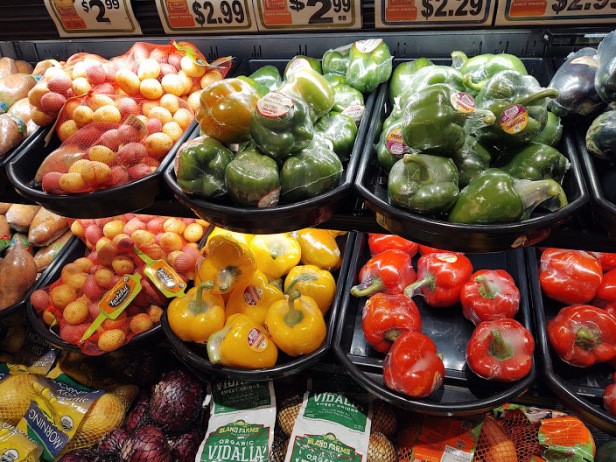
By Steven Finn
There’s no question that our global food system is in a state of disruption right now, and that disruption is incredibly painful.
In the developed world, we may be beyond the shock of initial stockouts of many food items due to immediate panic buying, but supply chains have been severely impacted, and producers have limited the breadth of product offerings in the short term to cope. But one need only look at the hunger numbers to see the very serious impact of Covid-19 to date. We know that over 800 million global citizens are hungry (and as FAO notes in The State of Food Security and Nutrition in the World report, that number has been rising annually since 2015 after years of progress) – and further, Covid has the potential to exacerbate existing drivers and roughly double the 135 million citizens suffering from acute hunger (see the 2020 Global Report on Food Crises, link here).
So we’re a long way from the Sustainable Development Goal of Zero Hunger (SDG 2), and with less than ten years until 2030, we are regressing on the hunger front.
At the same time, the speed with which organizations have studied the immediate impacts of Covid-19 on the food system, planned for changing conditions, adapted operations, and pivoted in new directions has been incredibly impressive. How can we further harness this wave of action?
One theme that has been clear from the start of the pandemic is the opportunity in disruption: every crisis brings opportunity. Winston Churchill famously stated “Never let a good crisis go to waste.” And when we think about food, which is essential for our survival, and the food system, which brings our food to us and at the same time is such a critical driver of planetary health – the notion of “opportunity” for change seems much less of a choice, and much more of a requirement.
Back in April in an Earth Day session with Sara Roversi and the Future Food Institute, I mentioned that we were focused on words like rebuild, and re-set, restore, redesign, rethink, reconnect, reimagine, and regenerative. We’re hearing those words a lot, and they evoke the notion of positive change.
Those last two are especially critical; it has been heartening to see the focus on reimagining a regenerative food system. And it is essential that our reimagination focus also has an action focus.
Earlier in June, the EAT Forum partnered with the Rockefeller Foundation in a session entitled Reimagining Food Systems: Driving Action for a Post-Covid World, video link here.
The session featured some excellent contributions from individuals such as Massimo Bottura (renowned chef and founder of Food For Soul), Dr. Rajiv Shah, President of the Rockefeller Foundation, and Emmanuel Faber, CEO of Danone – and they are a source of inspiration for the needed action focus.
In a talk revealing his recent emotional journey through the crisis, for example, Massimo Bottura noted that the pandemic has revealed the fragile nature of our food system, pointing out that we all have a “new responsibility to rebuild with beauty, light, color, and dignity.” He indicated the need for urgency, noting that “there is no time for tears” – and issued a call to action with an equity focus, stating that “we can create a world where anger is no more, we can reduce food waste, but first we need to make room for everyone at the table, there are no more excuses.” He also noted that while we can crunch numbers, make charts, measure, and count – at the end of the day “nutrition is not mathematical, it’s emotional.” That comment struck me as particularly poignant given the state of the global hunger numbers.
Next, Rockefeller Foundation President Rajiv Shah noted that Covid has created a period of unprecedented crisis for the global food system, exposing its vulnerabilities and injustices, and leading to increased food waste and increased hunger. He emphasized the “fragile and inequitable” nature of today’s food system, reminding us that even for those getting a sufficient number of calories our food system is driving cardiovascular disease, hypertension, and diabetes.
Shah pointed to the opportunity – and need – to make our food system “more equitable, more nourishing, and more sustainable for a planet that is in crisis.” Referencing the benefits of the Green Revolution in preventing millions from starving decades ago, he called for collaboration in a “renewed revolution” to change the way that we produce and consume food to not only address the immediate crisis, but to benefit human health and planetary health. His call for action was clear, and spot on.
Last, Danone CEO Emmanuel Faber gave a heartfelt, forward-thinking perspective from the business community on the need for change to the food system. Faber began by citing the human impact of the pandemic – and the vulnerability we are experiencing as a result of the suddenly-exposed fragility of the global food system. He immediately noted pressure on companies to revive operations in the quest to return to peak GDP levels at any cost -- i.e. without regard for social and environmental externalities. Impressively, Faber indicated that he feels such a short term focus would be a “huge mistake.”
Faber reminded us that humanity has suddenly been confronted by the fact that our ways of living (and particularly our business operations) have ignored the fact that we rely on Nature to live and thrive. This gets at the heart of the need for business to focus on creating shared societal value – factoring in impacts of operations on society, the environment, and future generations to create value for all stakeholders rather than simply focusing on profit maximization for a limited number of shareholders. Business can no longer externalize social and environmental costs, and global consumers should reinforce that expectation.
Faber correctly challenged us to look at the pandemic as the powerful signal of the need for change that it is, suggesting that we imagine that we were back in 2005, with the opportunity to determine the actions we would need to take to avoid the situation that we are in today. And he reminded us that the fundamental point of any resilient system “is to preserve its non-renewable resources and not pressurize its renewable resources beyond their regeneration ability.” Citing Agriculture’s massive environmental footprint, Faber called for a more plant-based food system with regenerative practices and market mechanisms to monetize carbon sinking, He also cited the risk of biodiversity loss and excessive reliance on a small number of crops and limited genetic diversity among animal stocks.
Significantly, Faber noted that there is a “big time” need to reimagine our food systems, and for change that properly prices externalities into business operations. He reminded us that “maximum intensity, zero-diversity Agriculture is a factor of pandemics”— a theme we must continue to emphasize to drive change (and which I covered in a previous post). He expressed his hope that the current generation would no longer take food for granted, and also called for education of consumers to reduce food waste for the benefit of natural ecosystems. He further posited that the value of global brands will be based on their power to serve humanity, while calling for collective action to drive the many needed changes to the food system.
In rapid succession, these three talks by Bottura, Shah, and Faber indicated many of the shortcomings of our current food system (exacerbated by Covid), while emphasizing the importance of 1) reimagining a new, resilient, regenerative system (one that benefits human and planetary health) and 2) taking the necessary actions to achieve it.
There is enormous positive momentum behind reimagining a regenerative food system. Let’s ensure we couple it with an action focus, for inaction means regression.
As Covid has demonstrated, we have a great opportunity before us -- to fix the food system, reverse the uptick and sharply reduce hunger, improve nutrition and human health, reduce biodiversity loss and deforestation, reduce food waste, reduce emissions, and much more -- all of which will advance the SDGs.
And at the end of the day, we really have no choice but to create a regenerative food system.
Welcome New Gastronomy and Food Studies Students part 5
We look forward to welcoming a wonderful new group of students in our fall 2021 classes, and hope you will enjoy getting to know a few of them here.

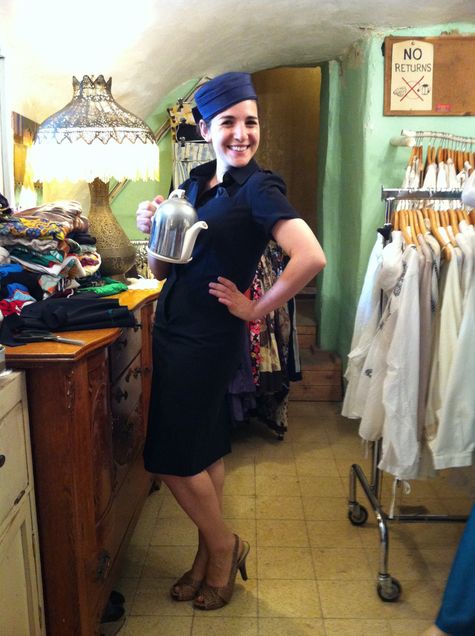 Ariella Amshalem has four children and a sense of humor.
Ariella Amshalem has four children and a sense of humor.
She has lived back and forth between Boston and Israel since the age of 5, and as of this winter, now resides permanently (?) in a lovely, semi-rural town where local milk is delivered to her doorstep every Tuesday morning.
After a career as a dancer and dance teacher, Ariella decided to pursue her other, more practical interest, and enrolled in pastry school when her first baby was eight months old. She has worked in cafes, bakeries, restaurants, a winery, written content for the Breville brand’s recipe site, teaches at the Cambridge School of Culinary Arts, and has led food tours around Jerusalem and Tel Aviv. She most recently taught dance and cooking at a girls’ school in a remote corner of the Negev Desert, where the students regularly ate and prepared couscous and bourekas, but had never baked a muffin.With her fourth baby in tow (or really, in arms) Ariella is hopeful that she will be able to take full advantage of this amazing opportunity to participate in the Gastronomy program and travel further along this wonderful and unpredictable journey.
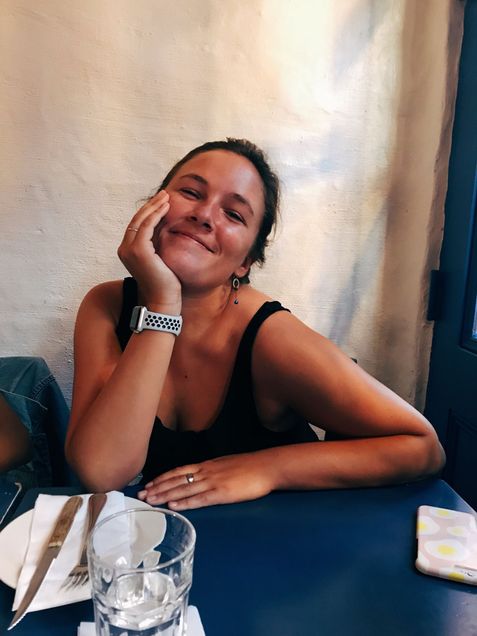 Growing up, Becca Miller spent all of her time in the kitchen with her family. Influenced by her parents British roots and the incredible food farmed around them on the North Shore of Massachusetts, they would spend their weekend’s preparing roast beef and Yorkshire puddings and devouring grilled corn and tomato salads.
Growing up, Becca Miller spent all of her time in the kitchen with her family. Influenced by her parents British roots and the incredible food farmed around them on the North Shore of Massachusetts, they would spend their weekend’s preparing roast beef and Yorkshire puddings and devouring grilled corn and tomato salads.
Throughout high school and college, Becca found herself drawn to creative nonfiction courses and relied on using food — recipes, stories about meals, and the connection subjects have with ingredients and dishes — to tell her stories. During her time at NYU Becca had the opportunity to study in London for two years, immersing herself in their diverse food community and spending every free day she had exploring the narrow aisles of Borough Market for the freshest fish and vegetables, always snacking on a Scotch egg as she wandered.
Becca graduated from NYU with a Liberal Arts degree and a minor in food studies and is currently working as the assistant editor in the Hearst Food Group where she writes for titles like Good Housekeeping and Women’s Health.
Becca is joining the BU Gastronomy program from New York City, where she is constantly attempting (and failing) to grow basil on her fire escape and is perpetually planning her next meal. She’s so excited to have the opportunity to be surrounded by a group of passionate food lovers and is looking forward to diving deep into classes on food writing and policy.
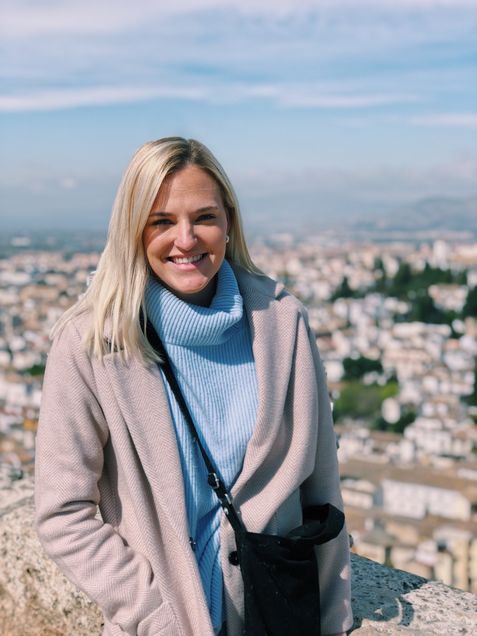 Having graduated mid-pandemic from Boston College with a degree in Communication, Lily Gribbel was forced to reconfigure her post-grad plans. Luckily, she isn’t a stranger to change. Having moved across the country from California’s Bay Area to Boston midway through high school, and then transferring halfway through college, Lily found comfort in the strange changes COVID brought about this spring. Spending weeks in isolation cooking food for her roommates and watching hours of food docuseries on Netflix, Lily rediscovered her interest for food-centric media content she studied frequently in undergrad. She is constantly trying to understand the strange and relatively new world of food media. Why have online food videos such as Youtube, bloggers, and docuseries become so pleasurable for people to view when they’re unable to taste the subject? Is taste able to permeate in some way through visual appeal/effects? Within the Gastronomy program, Lily hopes to further explore the way food can be used in visual media. Alongside her studies, she is about to begin her career working at a boutique PR firm in Boston to help local restaurants gain back business they lost during the pandemic.
Having graduated mid-pandemic from Boston College with a degree in Communication, Lily Gribbel was forced to reconfigure her post-grad plans. Luckily, she isn’t a stranger to change. Having moved across the country from California’s Bay Area to Boston midway through high school, and then transferring halfway through college, Lily found comfort in the strange changes COVID brought about this spring. Spending weeks in isolation cooking food for her roommates and watching hours of food docuseries on Netflix, Lily rediscovered her interest for food-centric media content she studied frequently in undergrad. She is constantly trying to understand the strange and relatively new world of food media. Why have online food videos such as Youtube, bloggers, and docuseries become so pleasurable for people to view when they’re unable to taste the subject? Is taste able to permeate in some way through visual appeal/effects? Within the Gastronomy program, Lily hopes to further explore the way food can be used in visual media. Alongside her studies, she is about to begin her career working at a boutique PR firm in Boston to help local restaurants gain back business they lost during the pandemic. Although Lily lacks prior experience in the world of gastronomy, unless working at a Bruegger’s Bagels in high school counts :), she is excited to dive into a completely new and exciting field. Taking inspiration from both coasts she has lived on and the 17 countries she has visited, Lily hopes to gain a better understanding of her relationship to food. In her free time, you can find Lily dining at local restaurants with friends, lounging at the beach, exercising along the Charles, or bingeing the newest online food content. She’s excited to meet new and unique people, explore great food, and refine her studies in the program this Fall!
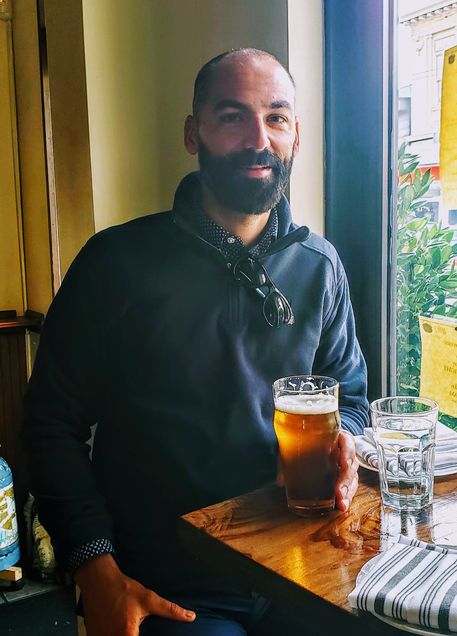 Born and raised in Pittsburgh, PA, Nick Lucovich has a passion for food deeply rooted beyond the local fare of pierogies and Primanti Brothers sandwiches. Frequent visits to the mushroom farm, where 3 generations of his family worked, ignited his interest for agriculture & food. He spent his teenage summers maintaining the grounds and hand packaging mushrooms. After earning a bachelor's degree in Food Science from Michigan State University, Nick started his career at Giant Eagle gaining experience in food service and retail with roles in sensory evaluation, quality, food safety, merchandising, and procurement. Nick joined Nestlé in 2013 and is currently a product developer within their Baking Division, responsible for leading innovation, renovation and optimization projects from idea to commercialization. He loves the science of prototyping and scaling recipes to large manufacturing proportions that ultimately lead to new or improved products in the market.
Born and raised in Pittsburgh, PA, Nick Lucovich has a passion for food deeply rooted beyond the local fare of pierogies and Primanti Brothers sandwiches. Frequent visits to the mushroom farm, where 3 generations of his family worked, ignited his interest for agriculture & food. He spent his teenage summers maintaining the grounds and hand packaging mushrooms. After earning a bachelor's degree in Food Science from Michigan State University, Nick started his career at Giant Eagle gaining experience in food service and retail with roles in sensory evaluation, quality, food safety, merchandising, and procurement. Nick joined Nestlé in 2013 and is currently a product developer within their Baking Division, responsible for leading innovation, renovation and optimization projects from idea to commercialization. He loves the science of prototyping and scaling recipes to large manufacturing proportions that ultimately lead to new or improved products in the market.
Nick enjoys traveling to explore regional markets and cuisines, running and fly-fishing. He is excited to join the Gastronomy program where he expects to fine-tune his discriminating abilities to evaluate and describe food, open up methods for developing new food products and elevate his personal culinary adventures. He is looking forward to the opportunity to research the origins, cultural importance, and environmental and social issues related to food.
Welcome New Gastronomy and Food Studies Students for Fall 2020 (part 4)
We look forward to welcoming a wonderful new group of students in our fall 2021 classes, and hope you will enjoy getting to know a few of them here.

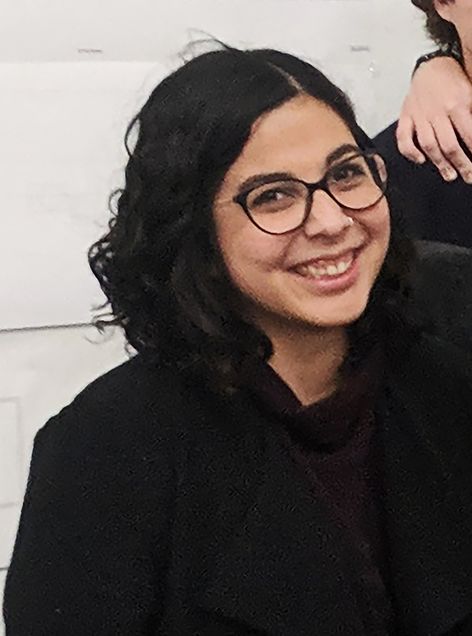 Stephanie Sang Delgado’s life has always revolved around food. From making, eating, and baking, not only would she cook or bake as a stress reliever but also as a way to connect to her upbringing. Being Cuban and Chinese, and born and raised in Puerto Rico, her childhood was mostly focused on her three cultures, and specifically, those cultures through food. As she grew up, she started to focus her time on social justice and was a Martin Luther King Jr. Scholar at Ithaca College, but food never left her mind. She would spend her time baking and cooking for her roommates and classmates. After Ithaca, Stephanie wanted to explore a new passion, architecture and went to graduate school at The Ohio State University. It wasn’t until she graduated and worked on the design of a culinary school that she realized the relationship between architecture and food. She wants to pursue an MLA in Gastronomy to further understand how food is studied and the methodology behind it to enhance her architecture research. Stephanie is a licensed architect and educator. She runs a small experimental award-winning practice called office ca. She currently teaches as a lecturer at Texas Tech University and Virginia Tech. Most recently, she was the Visiting Teaching Fellow at The School of Architecture at Taliesin and has taught at The Ohio State University and Columbus College of Art and Design.
Stephanie Sang Delgado’s life has always revolved around food. From making, eating, and baking, not only would she cook or bake as a stress reliever but also as a way to connect to her upbringing. Being Cuban and Chinese, and born and raised in Puerto Rico, her childhood was mostly focused on her three cultures, and specifically, those cultures through food. As she grew up, she started to focus her time on social justice and was a Martin Luther King Jr. Scholar at Ithaca College, but food never left her mind. She would spend her time baking and cooking for her roommates and classmates. After Ithaca, Stephanie wanted to explore a new passion, architecture and went to graduate school at The Ohio State University. It wasn’t until she graduated and worked on the design of a culinary school that she realized the relationship between architecture and food. She wants to pursue an MLA in Gastronomy to further understand how food is studied and the methodology behind it to enhance her architecture research. Stephanie is a licensed architect and educator. She runs a small experimental award-winning practice called office ca. She currently teaches as a lecturer at Texas Tech University and Virginia Tech. Most recently, she was the Visiting Teaching Fellow at The School of Architecture at Taliesin and has taught at The Ohio State University and Columbus College of Art and Design.
 Jessie Rives is very excited to be joining the Gastronomy program! Originally from rural New Hampshire, and with a few stops along the way, she has happily resided in Boston for over ten years. Her passion for food is longstanding, having spent some of her childhood living at a farm-school in upstate New York. Although her gardening is now limited to her patio planter boxes, someday she hopes to have a large, bountiful, backyard plot.
Jessie Rives is very excited to be joining the Gastronomy program! Originally from rural New Hampshire, and with a few stops along the way, she has happily resided in Boston for over ten years. Her passion for food is longstanding, having spent some of her childhood living at a farm-school in upstate New York. Although her gardening is now limited to her patio planter boxes, someday she hopes to have a large, bountiful, backyard plot.
Jessie has worked in many restaurants over the years, in both front and back of house roles, and truly enjoys the dynamic energy of the food industry. Eventually she would love to open a small cheese, wine, and specialty food shop similar to one of her favorite establishments in Boston, Formaggio Kitchen. Jessie has had the fortune to travel quite extensively and has always been fascinated by the inextricable tie between a culture and its food and culinary traditions.
She feels very lucky to have attended culinary school at The Cambridge School of Culinary Arts and earned her Level III certificate in the WSET program and hopes to utilize the knowledge gained from these programs in her studies at BU!
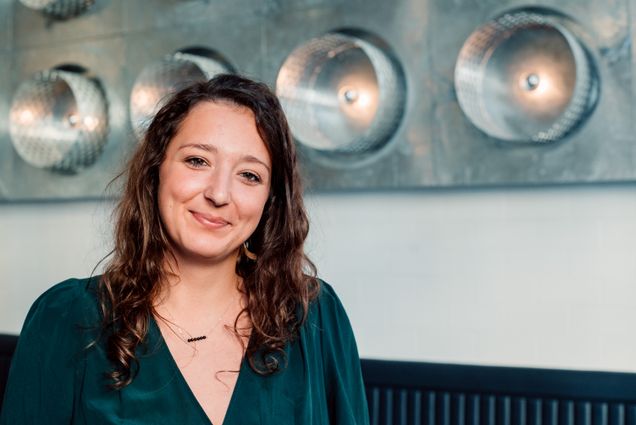 Madeline Blair has lived in the Somerville/Cambridge area for about about 3 and a half years. Having lived in Lake Tahoe for a period of time completing undergrad and working, she enjoyed moving back to New England and the abundance it has to offer. Madeline grew up in a small farm-town in Connecticut. She values the idea of food as nourishment and values connecting with the earth through sustainable farming practices.
Madeline Blair has lived in the Somerville/Cambridge area for about about 3 and a half years. Having lived in Lake Tahoe for a period of time completing undergrad and working, she enjoyed moving back to New England and the abundance it has to offer. Madeline grew up in a small farm-town in Connecticut. She values the idea of food as nourishment and values connecting with the earth through sustainable farming practices.
In the last month, she has been working on an exciting new venture, SolBe Provisions providing weekly seasonal food shares to the community by exploring culinary curiosities and the local-food ecosystem. She has spent time visiting, volunteering and connecting with farmers and the local communities.
She enjoys living in Somerville and having small dinner parties at her plant-filled home with her roommate. Madeline thrives when cooking and enjoying good food and drinks with others. Her favorite sandwich will always be a classic tomato sandwich in the middle of August. She has a great appreciation for the simplicity of a few delicious, quality ingredients coming together as one.
Madeline enjoys traveling which has given her great appreciation for different cultures, cuisines and lifestyles. Her experience in the restaurant industry has allowed her to grow and explore food and wine in depth and has ultimately encouraged curiosity to study at BU.
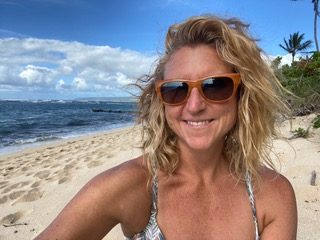 After working in national security for 15 years, Cynthia Archibald decided to pursue her passion for nutrition. She earned an MS in Holistic Nutrition in 2017 and began working in her community on Oahu’s north shore. She provides nutrition counseling, delivers community talks, partners with local farms, and continues research and writing. As she's learned more about the connection between diet, food production and the health of our planet, her interest has shifted toward issues of food security and sustainability.
After working in national security for 15 years, Cynthia Archibald decided to pursue her passion for nutrition. She earned an MS in Holistic Nutrition in 2017 and began working in her community on Oahu’s north shore. She provides nutrition counseling, delivers community talks, partners with local farms, and continues research and writing. As she's learned more about the connection between diet, food production and the health of our planet, her interest has shifted toward issues of food security and sustainability.
These issues are uniquely relevant to the islands of Hawaii, where she's lived for 13 years. Hawaii, which boasts some of the most ideal farming conditions in the world, has become almost entirely dependent on imported food. These issues led her to focus her community engagement on helping people understand how their food choices affect their health, their local economy, the environment and their security. However, she's concluded that in order to influence our society on a greater scale, she needs to further her knowledge on food systems, anthropology and food policy.
In her spare time she can usually be found in the ocean - swimming, surfing or paddling - or in the mountains running on trails or camping with her husband and black lab. Unsurprisingly, She is a hard core foodie and loves concocting creative internationally-inspired meals from locally-sourced veggies. She’s incredibly excited to join this cohort of like-minded folks!
Welcome New Gastronomy and Food Studies Students for Fall 2020 (part 3)
We look forward to welcoming a wonderful new group of students in our fall 2021 classes, and hope you will enjoy getting to know a few of them here.

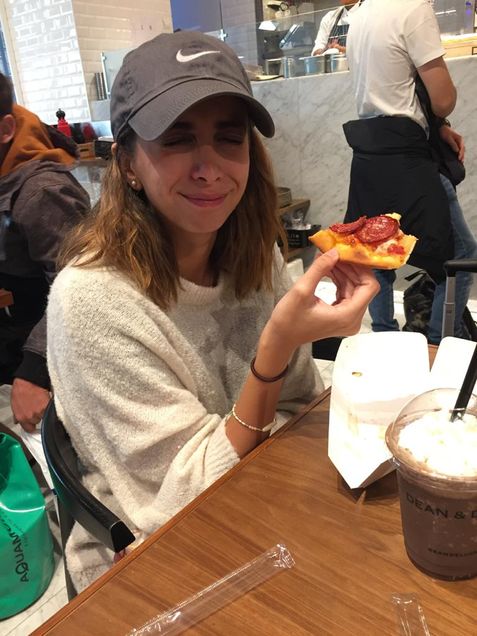 Salma Serry is an Egyptian writer, researcher and filmmaker. She grew up in Dubai where it is mundanely normal to have tangy Palestinian zaatar on Afghani naan for breakfast, hearty Persian Ash-e-jow soup for lunch, and smokey Yemeni Mandi for dinner after snacking on street-cafeteria Punjabi Samosa that is washed down with the quintessential British Vimto. And so naturally, she found a perfect fit in exploring the interconnectedness of food in the Middle East as a cultural product with all the rich yet complicated politics, histories and flavors the region carries.
Salma Serry is an Egyptian writer, researcher and filmmaker. She grew up in Dubai where it is mundanely normal to have tangy Palestinian zaatar on Afghani naan for breakfast, hearty Persian Ash-e-jow soup for lunch, and smokey Yemeni Mandi for dinner after snacking on street-cafeteria Punjabi Samosa that is washed down with the quintessential British Vimto. And so naturally, she found a perfect fit in exploring the interconnectedness of food in the Middle East as a cultural product with all the rich yet complicated politics, histories and flavors the region carries.
After working in the media industry for 10 years, Salma’s work now focuses on researching and documenting the media, film and food scenes with special interest in finding answers in history in order to understand contemporary socio-cultural issues and questions. She has an MA in Television and Digital Journalism from the American University in Cairo and has produced a number of films and projects on the history of Biryani, food safety in the Egyptian streets as well as a video installation that maps the immigrant food culture in Al Ras area of Dubai. In order to further develop her food research and writing skills, she has joined BU’s Gastronomy program this fall in hopes of strengthening her multidisciplinary practice and pursuing her obsession in everything falafel and hummus.
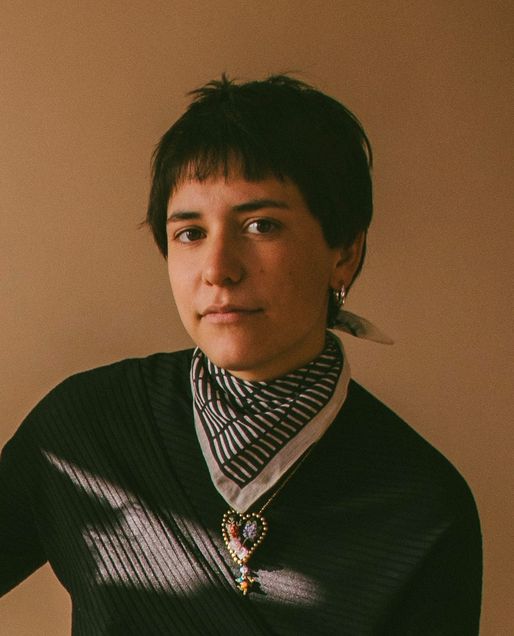 Born in Guadalajara, Mexico, María José Córdova immigrated with her family to Dallas, Texas at just a year old. Since then, she has grown up straddling the hyphen in Mexican-American.
Born in Guadalajara, Mexico, María José Córdova immigrated with her family to Dallas, Texas at just a year old. Since then, she has grown up straddling the hyphen in Mexican-American.
Curious to live in a different place, María José went to study English and French at Boston College. Learning languages led María José to teach English for a year in the French Basque country. There, María José began to appreciate both the simplicity and possibility contained in different foods. Cooking transformed from a household chore into a practice of intuition and passion.
At the end of her year, María José walked through France on El Camino de Santiago for thirteen days. This pilgrimage crossed cities, villages, vineyards, pastures, and farmlands. The visual and gustatory experience of food along the way was nourishing, replenishing, and always delicious. The regional view of food as a way of life inspired María José to return to Boston and become an apprentice at Siena Farms.
While at Siena Farms, María José worked her way up to becoming Harvest Manager and Greenhouse Manager. The demands of the job brought sore muscles but immense satisfaction. After learning the basics of growing vegetables, María José moved out of the farms and into the kitchen of Sofra, one of Boston’s most beloved cafés. The atmosphere of respect for Turkish culinary heritage and the importance of our local food systems at Sofra seemed to represent a culmination of Maria Jose’s previous experiences.
Through the gastronomy program, María José hopes to study ways that the restaurant industry can prioritize the values of equity and sustainability in their kitchens and dining rooms.
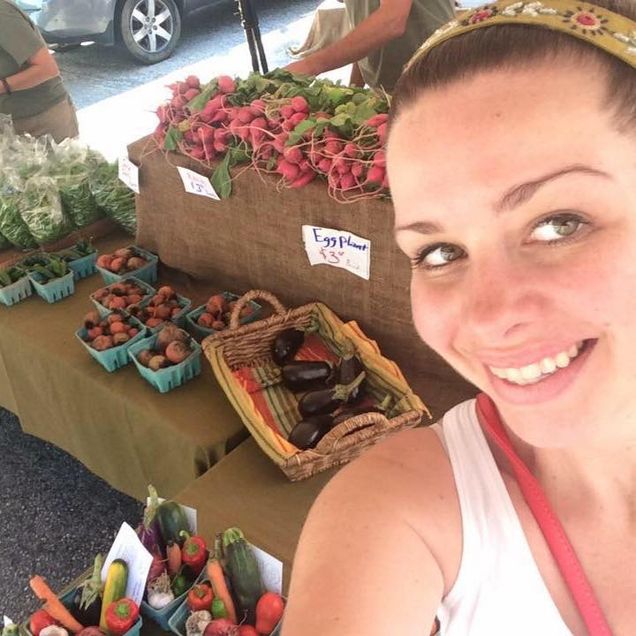 Corey Davis lives in Richmond, VA with her husband and their 3-year-old son. She graduated with a degree in Theater and Dance from James Madison University. As often happens, while working in the Richmond theater scene, Corey found herself also working in the restaurant industry. During that time, she developed a passion for food, wine, and spirits. That excitement ended up leading to a transition into Food and Beverage sales where she has been working in different capacities for the past 7 years. She is currently a National Account Manager at a beer wholesaler in Richmond, working with national convenience and grocery chains. However, over the years she has learned that a traditional salesman she is not - not in the crunching numbers sense anyway. But it’s different when a sale happens organically, when she is able to share something she’s excited about with someone who needs it.
Corey Davis lives in Richmond, VA with her husband and their 3-year-old son. She graduated with a degree in Theater and Dance from James Madison University. As often happens, while working in the Richmond theater scene, Corey found herself also working in the restaurant industry. During that time, she developed a passion for food, wine, and spirits. That excitement ended up leading to a transition into Food and Beverage sales where she has been working in different capacities for the past 7 years. She is currently a National Account Manager at a beer wholesaler in Richmond, working with national convenience and grocery chains. However, over the years she has learned that a traditional salesman she is not - not in the crunching numbers sense anyway. But it’s different when a sale happens organically, when she is able to share something she’s excited about with someone who needs it.
With that, Corey has transitioned this passion into starting Lifeis4Tasting social media pages. It began as a way for her to share the food and drink that she was enjoying at home and around town, but it has morphed, as she has, to be a tool for supporting local farmers, cooking with fresh ingredients, and lifting up the Richmond community and surrounding areas. During this time, she also started working seasonally at the Farmer’s Market with Black Creek Farm, an amazing produce farm located just outside of the Richmond area. Through this, she has made many great relationships with other farmers and vendors. She has continued to learn more about Virginia’s food system, what grows there, and how to use it. She continues to share what she has learned with others and with her family, and is excited to continue that growth at BU.
Welcome New Gastronomy and Food Studies Students for Fall 2020 (part 2)
We look forward to welcoming a wonderful new group of students in our fall 2021 classes, and hope you will enjoy getting to know a few of them here.
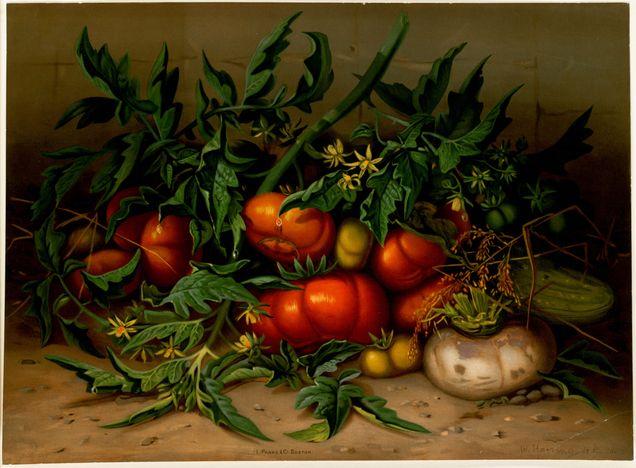
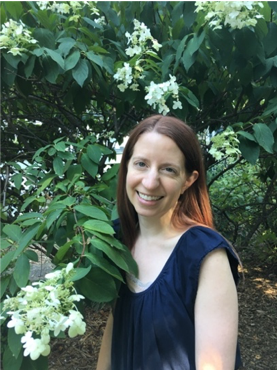 After living in several regions of the United States, Anne Howard settled in the great food town of Chicago upon graduating from Northwestern University. Her professional background includes time in marketing and advertising, where she learned not to copy-edit restaurant menus right before lunch. She spent several years reading resumes as a communications recruiter and enjoyed a side gig as a restaurant mystery shopper, the closest she’ll ever come to being a food critic. A chance meeting with an alum of the Gastronomy program led her to begin taking classes remotely, and she’s thrilled to now be officially enrolled in the program.
After living in several regions of the United States, Anne Howard settled in the great food town of Chicago upon graduating from Northwestern University. Her professional background includes time in marketing and advertising, where she learned not to copy-edit restaurant menus right before lunch. She spent several years reading resumes as a communications recruiter and enjoyed a side gig as a restaurant mystery shopper, the closest she’ll ever come to being a food critic. A chance meeting with an alum of the Gastronomy program led her to begin taking classes remotely, and she’s thrilled to now be officially enrolled in the program.
Raising two school-age children has caused Anne to think a great deal about food, and how the foods of our childhood affect us our entire lives. She’s interested in all things connected to food and kids: school lunches, food allergies, nutrition, marketing, the development of taste, etc. She’s also inordinately excited whenever she manages to grow something edible in her small, shaded urban garden.
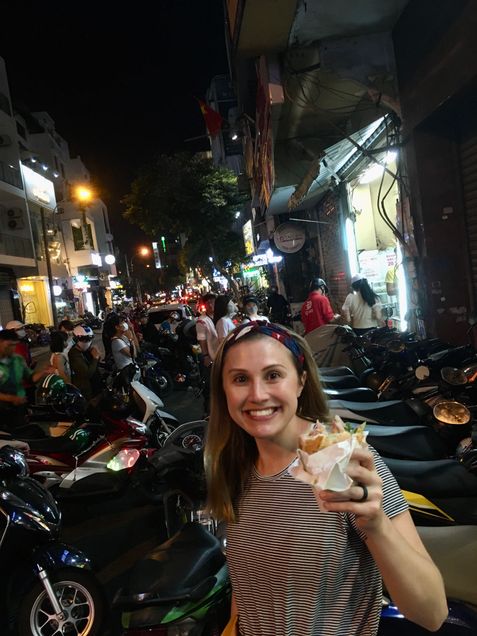 Erica Conte joins the Food Studies program from Chicago, Illinois where she has lived for the past 5 years. Prior to Chicago, Erica lived in New York and is originally from New Jersey.
Erica Conte joins the Food Studies program from Chicago, Illinois where she has lived for the past 5 years. Prior to Chicago, Erica lived in New York and is originally from New Jersey.
Erica spent the first part of her career in advertising but had an itch for something more. It wasn’t until she began working at a foodservice research and consulting firm that she started to examine her own relationship with food as well as the deep complexities around food systems. Erica always loved food and continues to test her spice tolerance regularly, but it wasn’t until this role that she became curious about how food made her feel, how food is labeled, or marketed.
Erica works with restaurants and food manufacturers that are looking for insights to help move their business forward in a dynamic and intricate industry. Having been in this industry for 4 years, Erica has become passionate about food policy, sustainability, and creating an equitable food system. On a pursuit to dive deeper into this field, she learned about the Food Studies program and is thrilled to get started in the fall. Erica looks forward to strengthening her knowledge in an area that has become an increasingly large part of her professional and personal life.
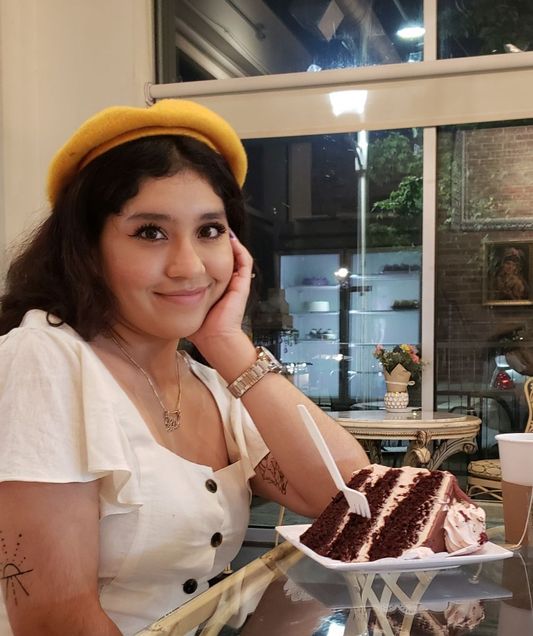 Edith Dimas was raised by Mexican immigrants in the southwest side of Chicago. She spent most of her childhood weekends watching her mother cook while hearing her mother tell stories of her childhood in rural Mexico. Edith would spend her summer vacations watching PBS cooking shows, writing down recipes, and cooking for her family.
Edith Dimas was raised by Mexican immigrants in the southwest side of Chicago. She spent most of her childhood weekends watching her mother cook while hearing her mother tell stories of her childhood in rural Mexico. Edith would spend her summer vacations watching PBS cooking shows, writing down recipes, and cooking for her family.
Having received a Sociology degree from Roosevelt University, Edith pursued working in non-profits and doing community work. While she enjoyed working with the community, her passion for food was rekindled when she and a group of co-workers decided to start a community garden. She tended the garden every day and enjoyed learning about the veggies and plants that blossomed in the garden.
With her reawakened love for food, Edith has since been working in a food bank, allowing her to work with food and do community work. Edith is enthusiastic about being part of the Gastronomy program. She hopes to learn and research the history of Mexican and indigenous cuisines.
Welcome New Gastronomy and Food Studies Students for Fall 2020
We look forward to welcoming a wonderful new group of students in our fall 2021 classes, and hope you will enjoy getting to know a few of them here.
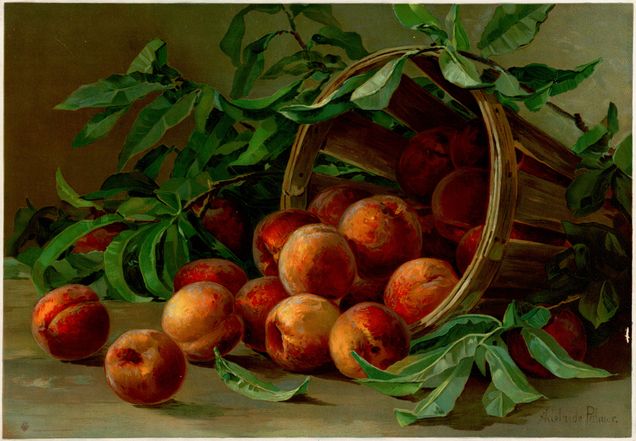
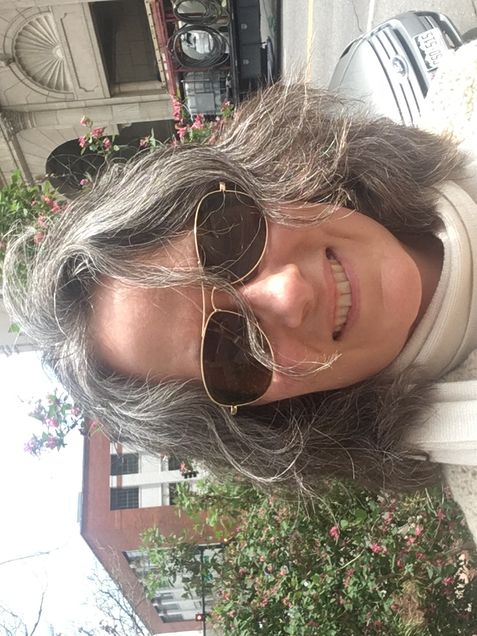 In the 1970s, people didn’t eat cardamom ice cream, at least not in Tulsa, Oklahoma, where Gretchen Kurtz grew up. But one night, staying up past bedtime to ring in the New Year with her parents, Gretchen tried it, and realized there was a world of flavor she’d never heard of. Since then, she’s spent her life learning about foods, cooking techniques and recipes, and is especially drawn to what they say about the people and culture that produced them.
In the 1970s, people didn’t eat cardamom ice cream, at least not in Tulsa, Oklahoma, where Gretchen Kurtz grew up. But one night, staying up past bedtime to ring in the New Year with her parents, Gretchen tried it, and realized there was a world of flavor she’d never heard of. Since then, she’s spent her life learning about foods, cooking techniques and recipes, and is especially drawn to what they say about the people and culture that produced them.
After graduating Princeton with a degree in comparative literature, Gretchen worked for several years in Paris, London and New York, where she spent weekends mapping out and visiting the cities’ best bakeries, tea salons and bistros. If the internet had been a thing back then, she would’ve surely started a blog about her experiences. Later she transitioned to food writing, first as an editor/writer at magazines and newspapers in New York City and Denver, including the New York Times and the Denver Post, and ultimately eating her way to a job as restaurant critic for Westword, an alt-weekly in Denver. After seven years in the role, Gretchen decided it was time to have different conversations about food than “what’s the best restaurant?” and happily discovered BU’s gastronomy program.
Though restaurants have been her niche, Gretchen never lost the thrill of home cooking, and loves nothing more than going to a farmers market, picking out peaches, tomatoes, squash and basil, and heading straight into the kitchen. To her, one silver lining of this pandemic has been the time to teach her three normally-busy teenagers how to braise, macerate, and make stock.
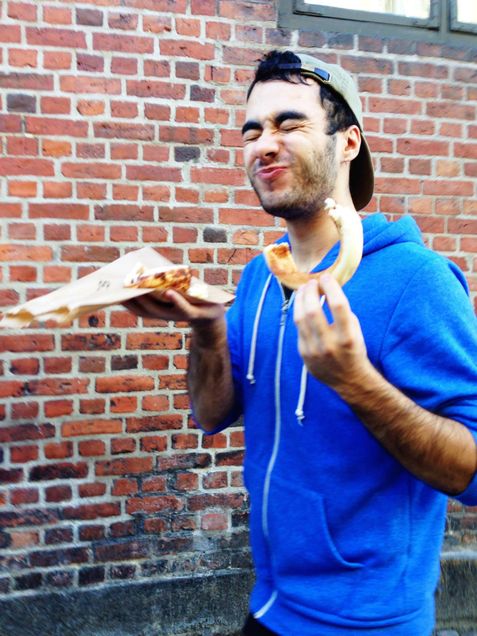 Julian Plovnick is a local guy hailing all the way from the distant streets of Brookline, MA. His obsession with food began when he was gifted his first knife set for his bar mitzvah (which he still uses to this day) along with a copy of Good Housekeeping's Children's Cookbook. Having noticed that he spent more time in the kitchen than on the dance floor, the caterer of the party offered Julian the opportunity to help her out with future events as a server and kitchen assistant. Thus, Julian's culinary journey began.
Julian Plovnick is a local guy hailing all the way from the distant streets of Brookline, MA. His obsession with food began when he was gifted his first knife set for his bar mitzvah (which he still uses to this day) along with a copy of Good Housekeeping's Children's Cookbook. Having noticed that he spent more time in the kitchen than on the dance floor, the caterer of the party offered Julian the opportunity to help her out with future events as a server and kitchen assistant. Thus, Julian's culinary journey began.
Fast-forward a couple years, and Julian received his English degree at Vassar College in New York's Hudson Valley (conveniently located 20 minutes away from the Culinary Institute of America). After graduating, he combined his love of food with his editorial talents at a variety of food-focused companies such as Clover Food Labs, culture: the word on cheese, and ezCater, where he's spent the last 4 years. Julian's ecstatic to continue along on his culinary journey within BU's Gastronomy Program, where he plans on furthering his skillset in food writing, recipe development, and business operations.
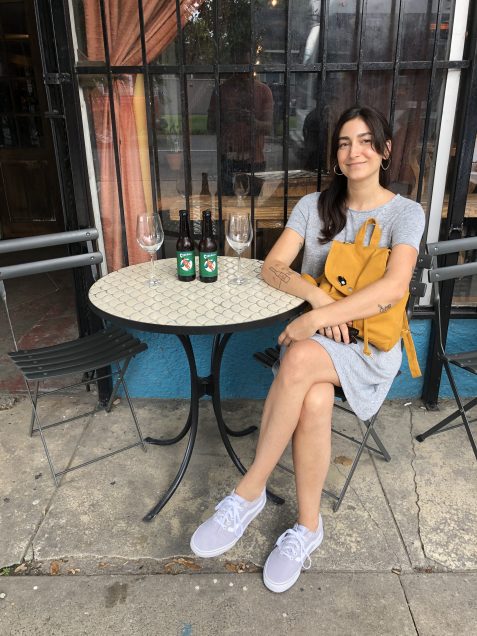 Marie-Louise Friedland was born and raised in her family’s French restaurant in San Antonio, Texas and from her time there as a child, she has had a passion for the Food & Beverage industry. She started with waiting tables in high school and branched out to try everything from being a cheesemonger to working in catering to becoming a Certified Sommelier as a way to fuel her passion.
Marie-Louise Friedland was born and raised in her family’s French restaurant in San Antonio, Texas and from her time there as a child, she has had a passion for the Food & Beverage industry. She started with waiting tables in high school and branched out to try everything from being a cheesemonger to working in catering to becoming a Certified Sommelier as a way to fuel her passion.
It was while working as a captain and Sommelier in Austin that she knew she wanted to travel as much as possible to learn about wine so she packed up everything and headed to San Francisco. It was there that she worked as a Manager and Wine Director, pushing her to immensely grow her palate. These positions allowed her to travel to famous wine regions but also allowed her to develop management and team building skills.
Following the desire to keep growing within the industry she moved back to Texas and explored more of the management side of restaurants. It was seeing the industry from this vantage point that pushed Marie-Louise to apply to a program that can equip her with the necessary education to help progress the industry forward. She is excited to join Boston University’s Master’s in Gastronomy program because she knows graduate school will give her the well-rounded understanding of all issues pertaining to the Food & Beverage world outside of restaurants. When she isn’t studying she is probably playing with her cat Billy, cooking something with her husband, record shopping or reading some Stephen King.
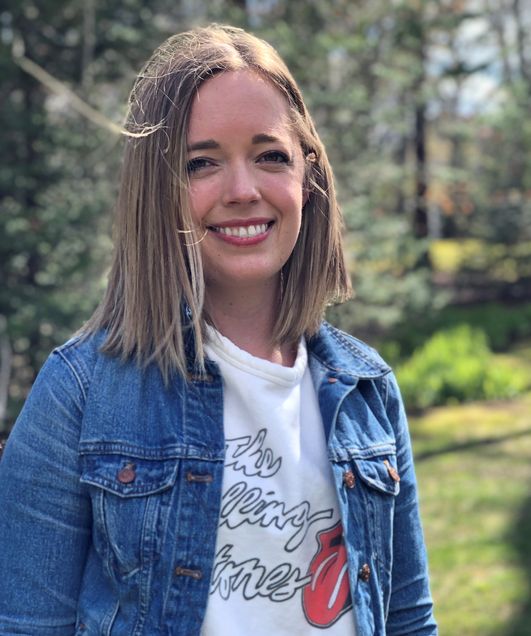 Haley Ornitz was born and raised in the Northeast surrounded by many creative family members, who inspired her to develop a passion for the arts and working with her hands at a young age. She studied Art/Art History at Bucknell University and has worked at non-profit and for-profit arts organizations in New York City and Boston for the past 10 years. Throughout her life, Haley has channeled her energy into many tactile crafts, including painting, calligraphy, pottery, knitting, and cooking, her favorite form of creative expression. She is excited to build upon her passion for food by pursuing her MLA in Gastronomy, a topic she became interested in for many of the same reasons she was drawn to Art History as an undergraduate. Similarly to studying society through a painting or an art movement, she loves learning about culture, history and political economies through the lens of a particular dish, type of regional cuisine or aspect of the food system. In addition to her studies, she is looking forward to exploring how she can apply her experience in the arts to a creative and meaningful career in the food industry. In her free time, Haley loves cooking and eating with family and friends, reading cookbooks cover to cover, and spending time outside with her husband and dog, Ranger.
Haley Ornitz was born and raised in the Northeast surrounded by many creative family members, who inspired her to develop a passion for the arts and working with her hands at a young age. She studied Art/Art History at Bucknell University and has worked at non-profit and for-profit arts organizations in New York City and Boston for the past 10 years. Throughout her life, Haley has channeled her energy into many tactile crafts, including painting, calligraphy, pottery, knitting, and cooking, her favorite form of creative expression. She is excited to build upon her passion for food by pursuing her MLA in Gastronomy, a topic she became interested in for many of the same reasons she was drawn to Art History as an undergraduate. Similarly to studying society through a painting or an art movement, she loves learning about culture, history and political economies through the lens of a particular dish, type of regional cuisine or aspect of the food system. In addition to her studies, she is looking forward to exploring how she can apply her experience in the arts to a creative and meaningful career in the food industry. In her free time, Haley loves cooking and eating with family and friends, reading cookbooks cover to cover, and spending time outside with her husband and dog, Ranger.
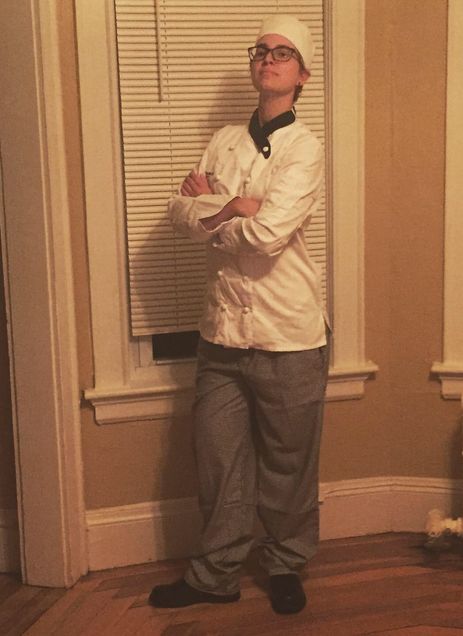 Bella Brookes first developed an interest in food preparation at the age of two, when she learned that messes were okay if it was because you were covering a cake in chocolate frosting and sprinkles. Originally from central Florida, she spent her formative years in Boulder, Colorado. Her formal interest in food was piqued when she spent four years getting a bachelor's in Cognitive Science in L.A. and was fully immersed in an international food culture. So much was the interest in food that she decided to completely turn her life around and spent one year at Johnson & Wales University's Pastry program in Rhode Island.
Bella Brookes first developed an interest in food preparation at the age of two, when she learned that messes were okay if it was because you were covering a cake in chocolate frosting and sprinkles. Originally from central Florida, she spent her formative years in Boulder, Colorado. Her formal interest in food was piqued when she spent four years getting a bachelor's in Cognitive Science in L.A. and was fully immersed in an international food culture. So much was the interest in food that she decided to completely turn her life around and spent one year at Johnson & Wales University's Pastry program in Rhode Island.
Bella took several jobs in bakeries in different locations before deciding to pursue the academic aspects of food and culture. She thinks her professional training will provide a practical background for studying the interactions between food and culture. Her current goal is to work in a publishing environment that focuses on food history and the evolution of food from straightforward sustenance into the nuanced and prominently social culture it is today.
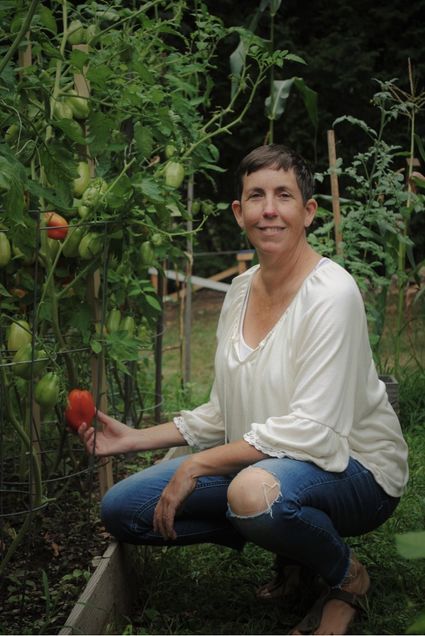 Jen Wood is from Worcester, Massachusetts where she has been a licensed massage therapist and small business owner for over 16 years. She received her B.A. in Anthropology, with a concentration in Environmental Sustainability, May 2020 from Southern New Hampshire University. Her passion for food history and culture came out of her early college years as an anthropology student at New Mexico State University in the early 1990s, after reading anthropologist Marvin Harris’s work on cultural food customs and taboos. While cooking and baking have been an interest since childhood, the plan to study food and anthropology became clear thanks, in part, to nutritional anthropologist Deborah Duchon and chef Anthony Bourdain.
Jen Wood is from Worcester, Massachusetts where she has been a licensed massage therapist and small business owner for over 16 years. She received her B.A. in Anthropology, with a concentration in Environmental Sustainability, May 2020 from Southern New Hampshire University. Her passion for food history and culture came out of her early college years as an anthropology student at New Mexico State University in the early 1990s, after reading anthropologist Marvin Harris’s work on cultural food customs and taboos. While cooking and baking have been an interest since childhood, the plan to study food and anthropology became clear thanks, in part, to nutritional anthropologist Deborah Duchon and chef Anthony Bourdain.
As an undergrad, Jen researched and wrote on the history of the noodle along the ancient Silk Road, the influence of breakfast cereal on pop culture, the problem and solutions of world-wide food waste, and focused her capstone on food insecurity in the world of Ethiopian khat farmers. As a massage therapist, she speaks to clients about their food choices as an approach to physical and mental healing. Jen’s downtown Worcester massage office is decorated with beautiful photos of food from around the world.
Jen is excited to begin a new education and career path with an open mind to what awaits her in the food studies realm. She brings along her husband, dog, cat and four hens on this life changing adventure. Jen loves hosting friends and family for feasts, especially if she grew the ingredients. Founded with her husband Chris, Woodstello Urban Farm was created as a fun Facebook page in spring of 2020, to connect with loved ones during the Covid-19 pandemic, with hopes to grow from a backyard garden into a small working farm, homesteading life, and recipe blog.
Food Justice and Prison Abolition
Gastronomy student Danielle Jacques calls on the community to sign this petition, written by BU Students Against Mass Incarceration, demanding that the university cuts ties with Aramark, one of the largest food service contractors in the country which services state and federal prisons as well as BU dining halls.
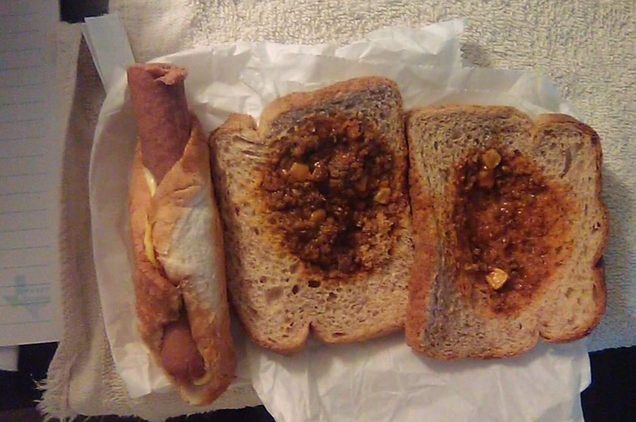
By Danielle Jacques
At first glance, the two topics in the title of this post may appear to have little to do with one another. Those of us who study the world through food may contend that the issue of food and prisons is peripheral rather than central to our discipline. On the contrary, we believe that our research has historically ignored the integral role of the carceral state in our food system, and that any world where the values of food justice are to succeed on a societal scale is necessarily a world without prisons.
The US prison system is hardly a few steps removed from its roots in slavery. In the wake of the Civil War, the convict lease system filled southern plantations with the free labor of formerly enslaved African American men. Though the program officially ended in 1910, both states and private companies continue to profit off the labor of incarcerated men and women, who are disproportionately black and brown. The recent wave of anti-immigration policies, which have increased hostility towards undocumented farmworkers, has also increased use of prison labor in agriculture throughout the US. As Reese and Carr point out in their recent Civil Eats piece, a just food system requires abolishing the “plantation-paradigm” that was built into our agricultural economy hundreds of years ago.
Research that unpacks the ills of industrial agriculture in the US often does not sufficiently acknowledge that our food system rationalizes incarcerated individuals as subhuman, and therefore disposable. But incarcerated people are not simply units of labor, producing the food that feeds this country for free. As human beings, they must also eat. And somehow, state and federal prisons with collective budgets of over $8.5 billion per year get away with feeding a population of 2.3 million incarcerated people for less than $2, per person, per day.
This is where Aramark comes into the picture. In Prison Food in America, Camplin details the business of feeding prisoners. Private contractors like Aramark have become popular in both federal and state prisons, with prison populations at as much as 137% capacity, because they promise to cut down both work and budgets for administrators. Since contracts are negotiated in advance, Aramark profits more by cutting food costs to the absolute bare minimum. And since there are no official food safety or nutritional protocols in prisons, there is no accountability.
We hear about the foods that people suffer through in prison anecdotally. Accusations of maggots, mice, and feces in Aramark’s meals have made headlines in recent years. “There's no imagining the cartoonish dishes that landed in front of us, like bologna soup” writes Stephen Katz. Camplin highlights an instance where portion sizes were reduced from two pieces of bread and a spoonful of vegetables to one piece of bread and half a spoonful. A woman who is five months pregnant eats plain, cold noodles for the fourth day in a row. Cafeterias run out of milk and soda is watered down. Even still, some prisons have reduced the number of meals per day from three to just two.
According to Al Gordon, who worked in an Aramark-run cafeteria while incarcerated, “you could eat six portions like the ones we served … and still be hungry. If we put more than the required portion on the tray the Aramark people would make us take it off. It wasn’t civilized. I lost 30 pounds. I would wake up at night and put toothpaste in my mouth to get rid of the hunger urge. The only way a person survived in there was to have money on the books to order from the canteen, but I didn’t have no money. It was especially bad for the diabetics, and there are a lot of diabetics behind bars.”
Given that environmental racism causes chronic diseases to disproportionately affect the same communities that are over-policed in this country, this example illustrates some of the layers of violence perpetrated against black Americans through food. Furthermore, according to Conley and de Waal, systematic food deprivation as a form of punishment, which has become the status quo in our prisons, qualifies as a “starvation crime.” Until Boston University cuts ties with Aramark, our tuition dollars will continue to fund these abuses.
But Aramark is only one piece of the ever-expanding prison-industrial complex, which, in the face of opposition, has adapted at every turn to meet the demands of its administrators and stakeholders. In 2018, for example, NPR broke the story of an Alabama county sheriff legally syphoning off $750,000 from his county’s prison food funds to buy a beach house. The “keep and retain” law, which dates back to the 1930’s, effectively incentivized cutting the costs of feeding prisoners by freeing up any savings from the food budget for the sheriff’s personal use. Outrage ensued, and in 2019 the law was changed, prohibiting sheriff’s from keeping the leftover money for themselves. But earlier this year, two counties in Alabama succeeded in amending their local constitutions in order to reinstate the law.
There is no question that every link in the prison-industrial food chain is, by design, exploitative and inhumane. A business model that incentivizes starving people for profit cannot be reformed. It must be abolished. For this reason, fighting for food justice means demanding nothing short of prison abolition. But as Reese and Carr point out, “as a terrain of struggle, abolition is as much about building the institutions, relationships, and worlds we want to live in as it is about dismantling those we reject.” It takes bravery and imagination to create a world that has never existed, but this is precisely the urgent and necessary work that must be done.
Course Spotlight: Cookbooks and History

What can cookbooks and recipes tell us about an individual? A community? A culture? What does the language of the recipe say about systems of knowledge and ways of thinking about the world? The movement of ingredients and food technology? The transmission of cooking knowledge? Does the analysis of historical cookbooks have contemporary applications?
In the “Cookbooks and History” course, Dr. Karen Metheny will help students consider these questions through a survey of historical cooking texts and in-class exercises. Students will examine cookbooks as a source of culinary history and a window into the changing material culture, practices, spaces, and relationships associated with food preparation and consumption. In addition, students will examine cookbooks and recipes as social documents that reveal the presence of social and economic hierarchies, networks and alliances, and political, economic, and religious structures. They will also examine these documents as cultural texts that reveal the construction of ethnic, gendered, and other identities. Students will study and analyze a selection of cookbooks from different historical periods and geographic regions leading to a final project and paper.
This class will meet on Monday evenings, from 6 to 8:45 PM, starting September 14th. The course is open to graduate students and advanced undergraduates. Non-degree students may also register. Please contact gastrmla@bu.edu for more information.
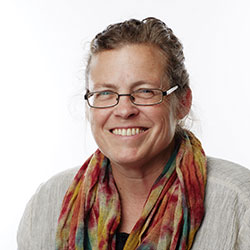
Food & Visual Culture: Student Photography
Gastronomy students in the Summer Session course, Food & Visual Culture, had the pleasure of taking a virtual field trip to food photographer, Nina Gallant's studio. Nina explained the contemporary food photography workflow process, and students were able to witness and engage in a client-driven project.
Nina then gave the students a challenge: "Create a message using food. Use this time and space to bring focus to a word or words that respond to the crazy world we are currently living in. You can spell a word or phrase, or simply create a still life using food and non-food items to express your idea, emotion, memory, daydream, or message. Use this assignment as a time and space to create a response to the zeitgeist we are participating in. Consider this photo an album cover for your life right now."
Here are some of the beautiful and thought-provoking images the students styled and photographed:
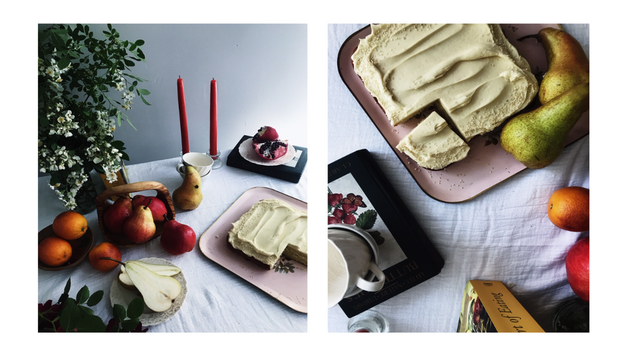
Since being quarantined, I have developed a deeper relationship with the concept of home. I wanted to create an image that reflected the mood and atmosphere I try to foster in my home. Inspired by 17th century Dutch still life paintings, home, to me, is a little bit moody and a place to reflect, recharge and appreciate small details like late afternoon light coming through the window or brown speckles on a ripe pear.
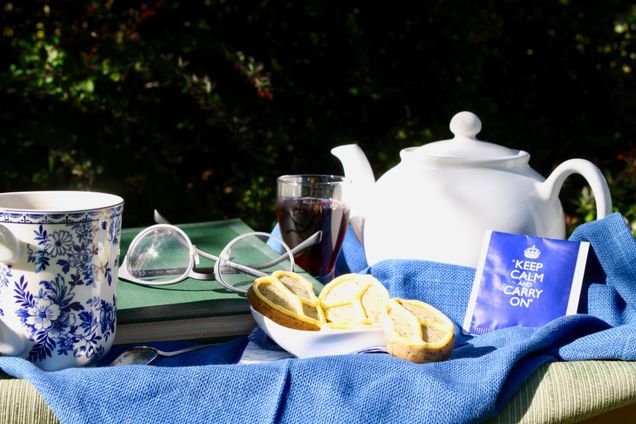
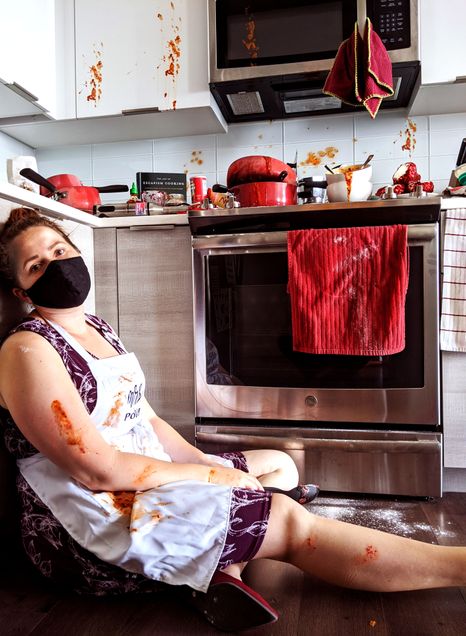
Anonymous woman: Quarantine Cooking
This photo attempts to represent the stress, anxiety, loneliness, and unpaid labor many people, especially female identifying individuals, have been burdened with during COVID-19 quarantine.
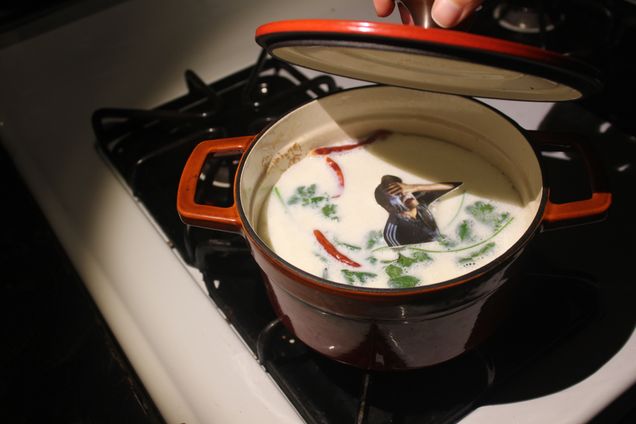
Pictured inside the pot, a photo of an unnamed protestor by John Minchillo/AP Photo.
This photo derives from less of a concrete idea, and more of a sensation. The pairing of coconut milk and chilis has marked my quarantine cooking endeavors, and one night as I listened to stories of the Black Lives Matter protests around the world, my face began to burn. I had touched it with the same hand I used to drop chilis into a pot of coconut milk and fish. In response, I thought of the countless images of protestors getting tear-gassed around the country, and how their eyes, throats, and skin burned as fellow protestors tried to soothe their pain, pouring milk and frothy sodium bicarbonate mixtures down their faces. In response to the tear-gassing of protestors (peaceful or otherwise) and the recent spotlight on the US’ oldest pandemic (white supremacy), I created this photo to explore the ideas of discomfort, control, white privilege, and as many of classmates pointed out, horror. I don’t think I’ll ever settle on one ‘meaning’ for it; with each time I view this image, its message changes, evoking all kinds of discomfort on a personal and societal level.
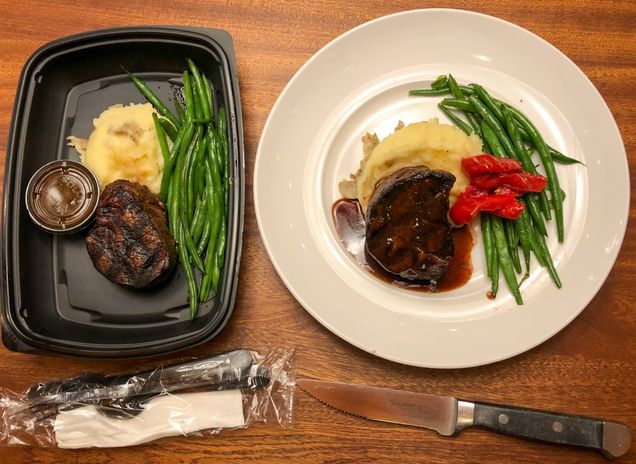
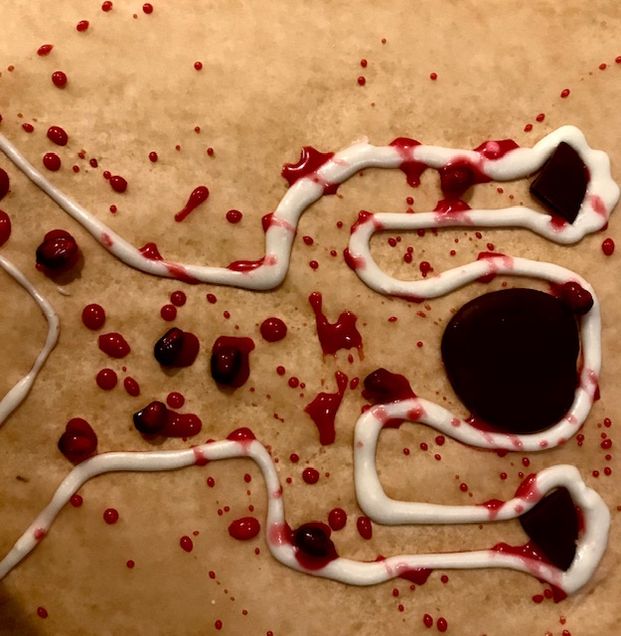
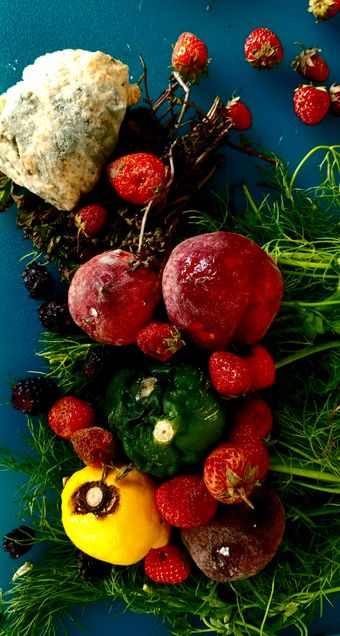
In response to the recent protests and uprisings against systemic racism and state sanctioned violence, an excuse that I have heard a lot lately is, “It’s only a few bad apples.” However, most people fail to finish this well known phrase: “A few bad apples ruin the whole bunch.” When composing this image, I didn’t have any bad apples on hand, but I used what was available to me. I chose the style of a still life oil painting to bring attention to the way that our society’s values, and what we deem beautiful.
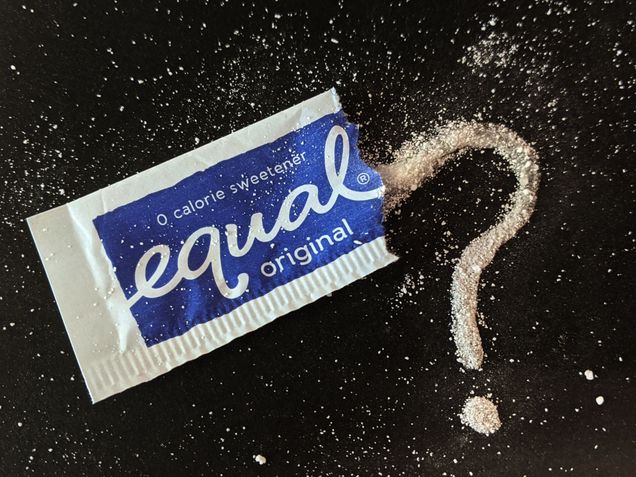
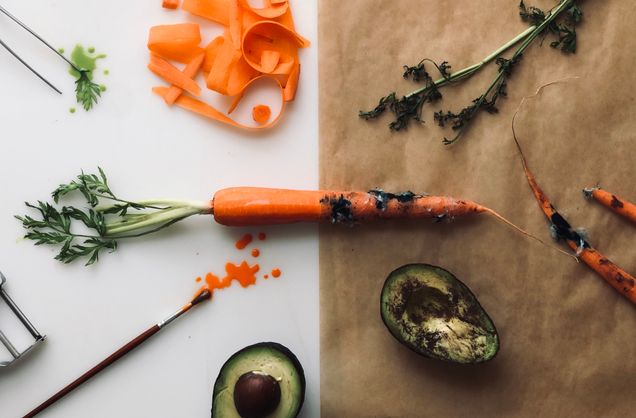
The Perfectly Neglected Carrot
What are the criteria for the fruits and vegetables you buy at the store? Perhaps the unblemished tomato, round firm oranges, or perfectly straight carrot? Unconsciously, many people pick up those that are aesthetically pleasing, yet 40% of it will be left uneaten. In light of the current food insecurities and ongoing fight towards preventing food waste, are you neglecting your food at home?
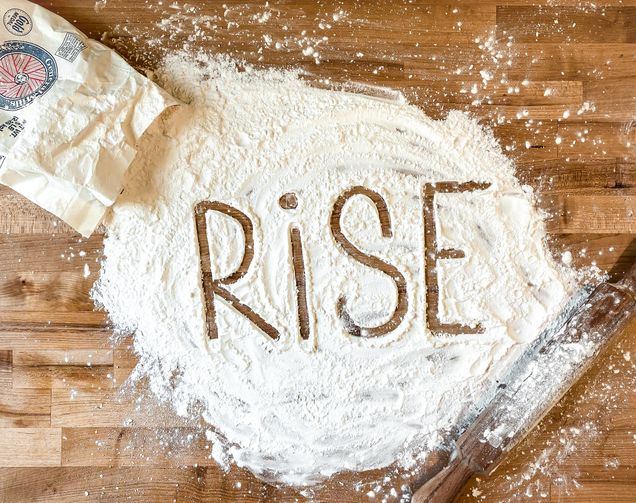
This photograph utilizes food items to spell a word in order to create double meanings; highlighting the characteristics of the food being photographed as well as societal events. The word, “Rise,” written into the flour, encourages transformation. Rising is not just what bread does, it is also a call to rise up against racist systems and industries to make them more just, diverse, and inclusive.
